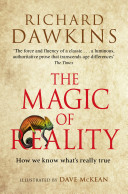As I organize my thoughts criticizing the Islamic practice of fasting it’s only fair to cite some of the defenses of practice put forward by Muslims thinkers.
Aside from claims health benefits of fasting, Muslim style (yes, some of them have the nerve to make such claims), there have been claims that dehydration and starvation when experienced in person make empathy for hungry and needy more realistic and hence willing lead to compassion. On many levels this is a non sequitur. For starters, Islamic fasting by no means replicates the plight of the needy. Fasting Muslims, unlike those actually knowing hunger, always know they are only a few hours removed from their next meal. But even if it did, it still would not follow that fasting makes you compassionate, because you don’t need to inflict self harm to be able to understand the suffering of others. Compassion comes from the mental ability to identify with the other person’s condition, not to go through that physically yourself. One would have to wonder the loss of how many relatives in the Holocaust it would take to make an Oskar Schindler. The answer, of course, is none.
And then of course there are the claims about spirituality and connections with the divine that accompany the fasting tradition. Needless to say, none of this would justify an unpleasant and potentially dangerous practice as the Islamic fast. Followers of faiths other than Islam can provide countless examples of inner joy and transcendence through practices that are not so masochistic, and nonbelievers can attest that similar feeling can come from scientific understanding of the workings of the world around us, no starvation needed.
But the faithful’s anecdotes and apologetics notwithstanding, the Quran itself gives us the reason why the faithful need to fast right where it issues the commandment for fasting (2:183). The verse enjoining the faithful to fast has being differently translated to mean doing so in order to become “pious” or in order to ward off evil. Regardless, according to the verse, to believe in any benefit from the practice of fasting is contingent upon an a priori acceptance of the truth of the Islamic faith. From an outsider’s perspective, however, the Quran is imposing an extremely onerous requirement its followers, for no tangible benefits, with the exception of community building (or cult building, depending on the viewpoint).
When was seen as such, the practice of fasting benefits the faith, but not the faithful in the least.

